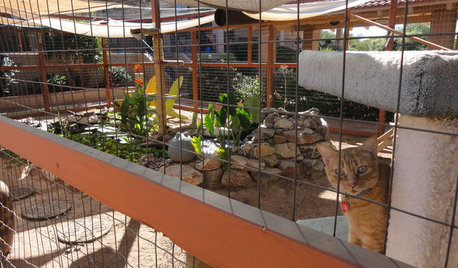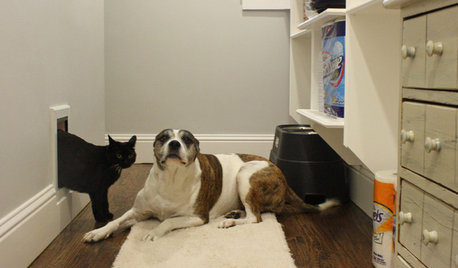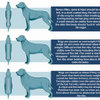resorption of teeth in cat
cheryl_p
13 years ago
Related Stories

PETSHouzz Call: Send in the Design Cats
Post your best photo of your cat at home, in the garden or with you in your studio. It could be published in a featured ideabook
Full Story
HOUZZ TOURSHouzz Tour: For the Love of a Cat in Philadelphia
Pet-friendly features integrated into a mod, eclectic and colorful home mean everyone in the family is happy
Full Story
PETSSee a Deluxe 'Catio' Built for Feline Fun
Sixteen lucky cats get the run of a protected outdoor patio with ramps, steps and even a koi pond
Full Story
LIFEHow to Keep Your Pets Safe During the Holidays
To avoid an unwanted trip to the vet, be aware of these holiday-related hazards for dogs and cats
Full Story
PETSDealing With Pet Messes: An Animal Lover's Story
Cat and dog hair, tracked-in mud, scratched floors ... see how one pet guardian learned to cope and to focus on the love
Full Story
LIFEYour First-Aid, Emergency and Medical Supply Checklist
Don’t wait until you need them to stock your first-aid kit and emergency stash. Here’s what to get and where to keep it
Full Story
MEDITERRANEAN STYLEHouzz Tour: A Modern Take on Southwest Style
A designer updates a classic adobe home with lighter furnishings, fresh finishes and complementary ethnic motifs
Full Story
PETSPet-Proofing Your Home: A Room-by-Room Guide
Not all pet dangers are obvious. Keep furry friends safe and sound by handling all of these potential hazards
Full Story
HOUZZ TOURSMy Houzz: Ease and Coziness in Rural Australia
Nothing is ‘too fancy or perfect’ in this 150-year-old bluestone farmhouse, but everything sure is warm and inviting
Full StoryMore Discussions









laurief_gw
quasifish
Related Professionals
Arvada Architects & Building Designers · Henderson Architects & Building Designers · Oakley Architects & Building Designers · Pedley Architects & Building Designers · Cedar Rapids Furniture & Accessories · Charlotte Furniture & Accessories · Vermillion Cabinets & Cabinetry · University Park Cabinets & Cabinetry · American Fork Flooring Contractors · Goodyear Flooring Contractors · Lebanon Flooring Contractors · Lewis Center Flooring Contractors · Pittsburg Flooring Contractors · South Lake Tahoe Flooring Contractors · Trenton Flooring ContractorsMeghane